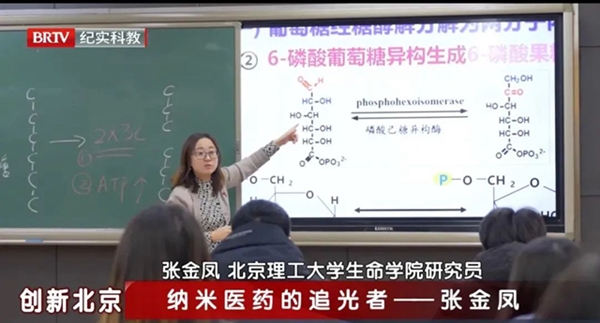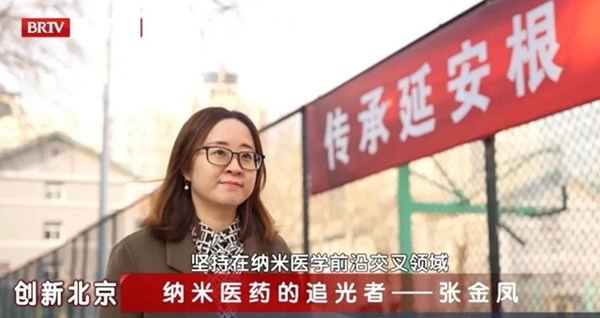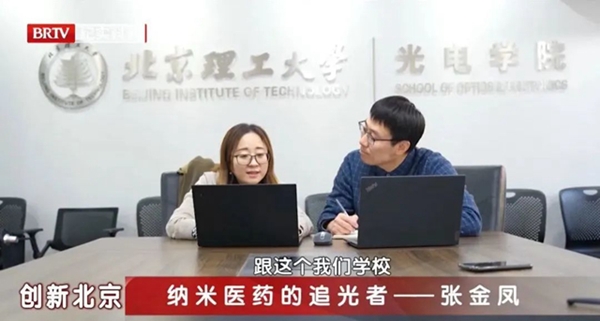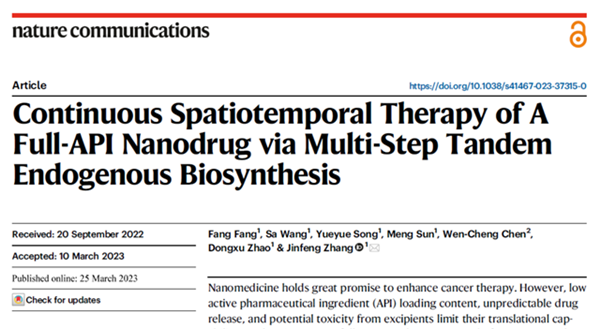

Updated: 2024-03-22

Zhang Jinfeng, a researcher at the School of Life Science of the Beijing Institute of Technology (BIT), is a doctoral supervisor, project leader, and national-level young talent.

Zhang focuses on the research of nanomedicine and its applications in disease diagnosis and treatment. She has published over 40 SCI papers (21 with an Impact Factor > 10) as corresponding/first author in international journals such as Nature Communications.

She holds more than 10 authorized invention patents (two of which have been transferred) and has undertaken over 10 projects, including those sponsored by the National Natural Science Foundation of China and the Beijing Natural Science Foundation.
Since joining BIT in 2018, Zhang has consistently been at the forefront of interdisciplinary fields in nanomedicine.

Engaged in the study of nanomedicine and its applications in disease diagnosis and treatment, Zhang addresses key scientific issues such as the low and uncontrollable yield of traditional methods for preparing nanodrugs, low content of active drug components in inert carrier-type nanodrugs, and the lack of high-performance integrated diagnosis and treatment nanodrugs.
Zhang has long been committed to the rational design and controllable preparation of self-assembled nanodrugs and their applications in various diseases such as tumors, neurodegenerative diseases, and inflammatory diseases.

In March 2023, Zhang Jinfeng's research group proposed a concept called Full-API nanodrug (FAND) as a new type of highly efficient and low-toxic nanodrug for cancer treatment, which has attracted great attention.
The research group, as an independent corresponding author, published related research achievements in the top international academic journal Nature Communications (Nat. Commun., 2023, 14, 1660).















